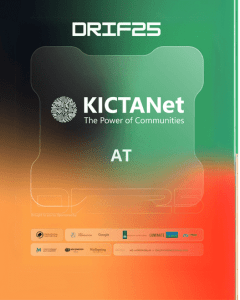In an increasingly digitized world, the taxation landscape is undergoing significant transformation. The digitization of Kenya’s economy has introduced digital taxation through the Finance Act 2020, with a tax rate of 1.5% on the gross transaction value.
In the financial year ending in 2023, the Kenya Revenue Authority (KRA) collected KES 5.328 billion (approximately $37.5 million) from digital services, marking a 207.9% growth. This shift underscores Kenya’s proactive stance in modernizing its tax framework.
However, it has presented challenges and opportunities, including privacy, economic, and compliance concerns, and the potential for significant revenue from digital transactions.
The Finance Bill 2024 was up for public participation, prompting KICTANet to submit a comprehensive memorandum on the Finance Bill, 2024 (National Assembly Bills No. 30 of 2024). This submission was drawn from a three-day public discussion on KICTANet’s mailing list and included contributions from our listers and the Centre for Intellectual Property and Information Technology Law (CIPIT), Strathmore University.
The memorandum was submitted to the Departmental Committee on Finance and National Planning, Office of the Clerk of the National Assembly.
The submission highlights the Finance Bill 2024
The Finance Bill 2024 proposes several amendments that significantly impact the digital economy in Kenya. While aimed at increasing tax revenue, these changes raise concerns about data protection and privacy, digital economic growth and compliance. Below, we delve into the key issues surrounding digital taxation in the proposed bill.
Exemption of KRA from the Data Protection Act
The bill seeks to amend Section 51 of the Data Protection Act to exempt the Kenya Revenue Authority (KRA) from its provisions when processing personal data related to tax matters. This exemption raises significant privacy concerns.
The Data Protection Act is designed to ensure data autonomy and mandatory consent from data subjects, thereby preventing arbitrary data collection. The proposed amendment would grant the KRA unchecked access to personal data, potentially leading to abuses and excessive surveillance.
This contravenes Article 24 of the Kenyan Constitution, which mandates necessity and proportionality in limiting rights, including the right to privacy under Article 31.
Introduction of Digital Content Monetization Tax
The bill also proposes an income tax on digital content monetization, replacing the existing Digital Service Tax (DST) with a Significant Economic Presence Tax (SEPT) for non-resident digital service providers. The tax rates are set at 20% for non-residents and 5% for residents.
However, the lack of clarity on how the taxable amount is determined poses a significant challenge. Additionally, this high taxation could stifle innovation, discourage investment, and burden small-scale content creators, potentially stifling economic growth in Kenya’s burgeoning digital economy.
Withholding Tax on Software Purchases
Another contentious proposal is the imposition of withholding tax on software purchases, regardless of whether intellectual property rights are transferred.
This diverges from international standards and a previous High Court decision, which stipulated that withholding tax should only apply when intellectual property rights are transferred. Taxing all software purchases as royalties contradicts best practices and could harm the software industry by increasing costs and reducing competitiveness.
Replacement of Digital Service Tax with SEPT
The proposed SEPT significantly increases the tax burden on digital services provided by non-residents. While aiming to streamline taxation in the digital economy, the four-fold increase in tax rates is likely to hamper growth and deter investment, making Kenya less competitive compared to its neighbours.
The bill should consider an analysis of the SEPT regime’s potential impacts and engage stakeholders for meaningful input.
Repeal of Tax Exemption on Income Earned Under the Ajira Digital Program
The bill proposes to repeal the three-year tax exemption for individuals under the Ajira Digital Program. This repeal could discourage participation in the program, especially among youth and gig economy workers who rely on this income.
The abrupt removal of this tax incentive could slow the growth of the digital economy and reduce the number of skilled digital workers.
Imposition of Excise Duty on Digital Services
The introduction of excise duty on excisable services offered by non-residents through digital platforms could increase prices for consumers and pose enforcement challenges for the KRA.
This proposal could lead to higher costs for digital services, impacting affordability and digital accessibility for users. The increased tax burden may also discourage non-resident providers from entering the Kenyan market.
Increased Excise Duty on Telecommunication Services
The bill proposes to raise excise duty on telecommunication services, including telephone and internet data, from 15% to 20%. This increase could disproportionately affect low-income earners, widen the digital divide, and reduce financial inclusion.
High taxes on mobile money transfers and financial services could drive consumers towards informal channels, undermining financial stability and inclusion efforts.
Introduction of Eco Levy on ICT Goods or Apparatus
The proposed Eco Levy on ICT apparatus could raise prices for both locally manufactured and imported goods, slowing down technology adoption and digital transformation.
The high costs could also deter investment in the ICT sector and widen the digital divide. It is crucial to ensure that funds collected from the Eco Levy are reinvested in environmental initiatives that directly benefit the ICT sector.
Conclusion
While the Finance Bill 2024 aims to increase tax revenue, its proposed amendments pose significant risks to privacy, economic growth, and digital inclusion. Policymakers must balance revenue generation with the need to foster innovation, protect privacy, and ensure equitable access to digital services.
Engaging stakeholders, conducting thorough impact analyses, and considering phased or targeted approaches to taxation could help mitigate these challenges and support the sustainable growth of Kenya’s digital economy.
KICTANet’s detailed memorandum addresses several key areas related to revenue-raising measures, including the liability and collection of taxes. By considering our proposals, the government can ensure a balanced and fair approach to digital taxation, promoting a thriving and inclusive digital economy in Kenya.
![]()




